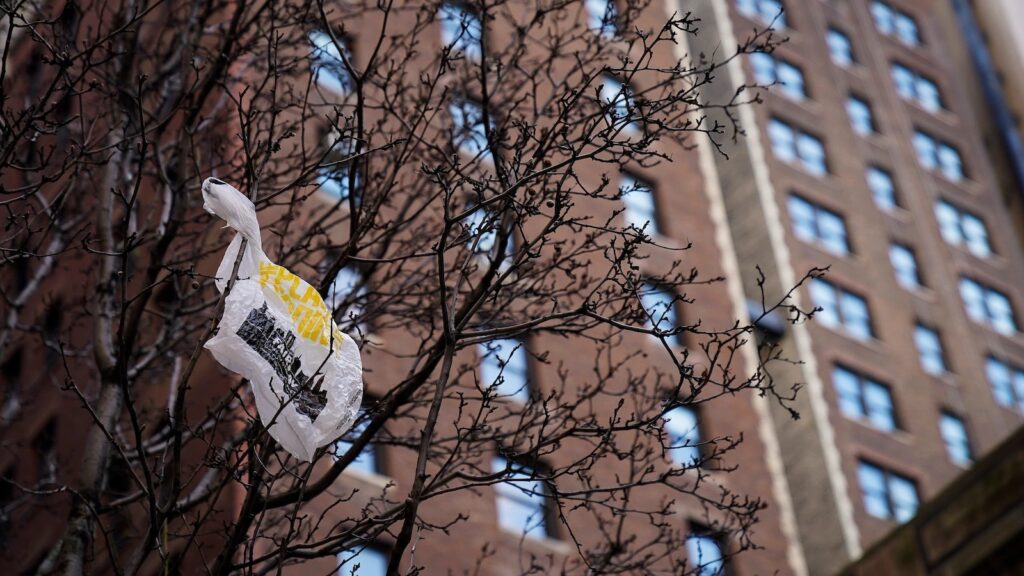To reduce plastic pollution in New York state
As the state of New York method to deal with a plastic pollution issue, legislators are targeting the issue with a number of new policy measures.
Two measures presented this month in the New York state assembly would impose stringent rules on plastic makers, mandating, among other things, that they pay for trash management and drastically raise recycling rates.
One of the measures, dubbed “the strongest packaging reduction law in the nation” by its supporters, would mandate plastic manufacturers to cut their single-use packaging by at least 50 percent within 10 years, as well as require large polluters to cover the cost of plastic disposal and recycling. The alternative idea would increase New York’s “Bottle Bill,” which allows consumers to receive a few cents for returning empty bottles to a shop or redemption centre.
“This comprehensive law is consistent with the seriousness of the plastic pollution issue,” said Judith Enck, former regional administrator for the Environmental Protection Agency and president of the campaign group Beyond Plastics.
Assembly Bill A10185 invokes the extended producer responsibility, or EPR, notion. Numerous programmes fall under the rubric of Extended Producer Responsibility (EPR), but the approach generally tries to impose the economic burden of waste disposal on the corporations who manufacture and use plastic items. Therefore, companies should pay for all cleanup, disposal, recycling, and other handling costs related with the products their consumers discard.
In addition to the goal of halving the amount of single-use packaging, the bill would require plastic producers to pay fees based on the amount of packaging material they sell and convert 90 percent of their remaining non reusable packaging to recyclable, compostable, or post-consumer recycled content within 12 years of the bill’s implementation.
Other provisions of the law include a prohibition on the use of per- and polyfluoroalkyl substances (PFAS), bisphenols, and halogenated flame retardants by manufacturers. These compounds have been associated with neurological, developmental, and metabolic issues, as well as an elevated cancer risk. Every three years, at least ten new substances must be added to the list of banned substances, unless authorities conclude that “there are not ten chemicals that fulfil the category of dangerous substances.”
The EPR bill would not apply to all businesses: producers with less than $2 million in yearly gross revenue or less than 1 tonne of packaging material annually would be exempt. In addition, it would not apply to reusable packaging or medical packaging.
Rachel Karasik, a policy associate at Duke University’s Oceans and Ecosystem Services programmes, remarked that the bill was notable for explicitly prohibiting so-called “chemical recycling” from being counted toward mandatory recycling benchmarks. Chemical recycling is a process in which used plastic is melted down and theoretically incorporated into new products.
Environmental advocates have condemned the method as a “expensive and convoluted way to burn fossil fuels” due to the fact that cost and technological constraints sometimes drive businesses to burn melted plastic as fuel instead of converting it into new products. In other jurisdictions, it has been less apparent whether chemical recycling may count toward plastic-use reduction objectives.
Assembly Bill A10184 would expand New York state’s bottle law to cover containers for non-carbonated beverages, such as wine, juice, and tea, and double the current 5-cent deposit, allowing consumers to get 10 cents for each returned bottle. The law is premised on the notion that consumers will pay a deposit whenever they purchase a qualifying beverage, and will receive their deposit back when they return the empty container.
The New York assemblymember who introduced the legislation, Steve Englebright, stated in a news conference earlier this month that he believes the proposals have a “strong chance” of passing, although this is unlikely to occur until next year; the Assembly’s current term ends on June 2.
Environmentalists applauded the proposed legislation as a chance to incentivize businesses to forgo wasteful packaging. Brian Langloss, a senior field representative for the non-profit Oceana in New York, stated that the EPR law would coincide with the values of 88 percent of registered New York state voters who support legislation to minimise single-use plastics. “We’re not the only ones tired of seeing plastic in our waterways and on our trees,” he said, describing “snow-capped” trees covered with plastic bags and views of the Hudson River clogged with floating plastic bottles.
According to Beyond Plastics, New York generates over 7 million metric tonnes of plastic packaging garbage annually, which accounts for approximately 40 percent of the state’s total waste stream. It is improbable that this plastic can be recycled. Instead, it is burnt, landfilled, or released straight into the environment, where it pollutes the soil and water with harmful compounds.

Other states have also suggested legislation to curb their plastic pollution, but according to Karasik, few are as thorough as New York’s proposal. Voters in California will soon contemplate a contentious ballot issue that would require a 25 percent reduction in single-use plastics by 2030, a pace that New York would surpass within four years if the packaging bill passes.
Other laws in Maine and Oregon mandate plastic companies to establish and fund waste stewardship organisations, but they lack quantifiable plastic reduction objectives. At the federal level, the proposed Break Free From Plastic Pollution Act aims to establish a national EPR programme that would require producers to pay for long-term packaging pollution, but it also omits numerical targets for reducing plastic output.
The Rochester Dumpster Rental Team play a pivotal role in combating plastic pollution. By promoting responsible waste management and recycling practices, we are contributing to a cleaner and more sustainable environment.
✓ Fast delivery and pickup
✓ Serving the Rochester, NY area for twenty years
✓ Customer friendly staff
✓ Get a quote today, call 716-217-6690 now!
✓ Local family business
✓ Satisfaction guaranteed
